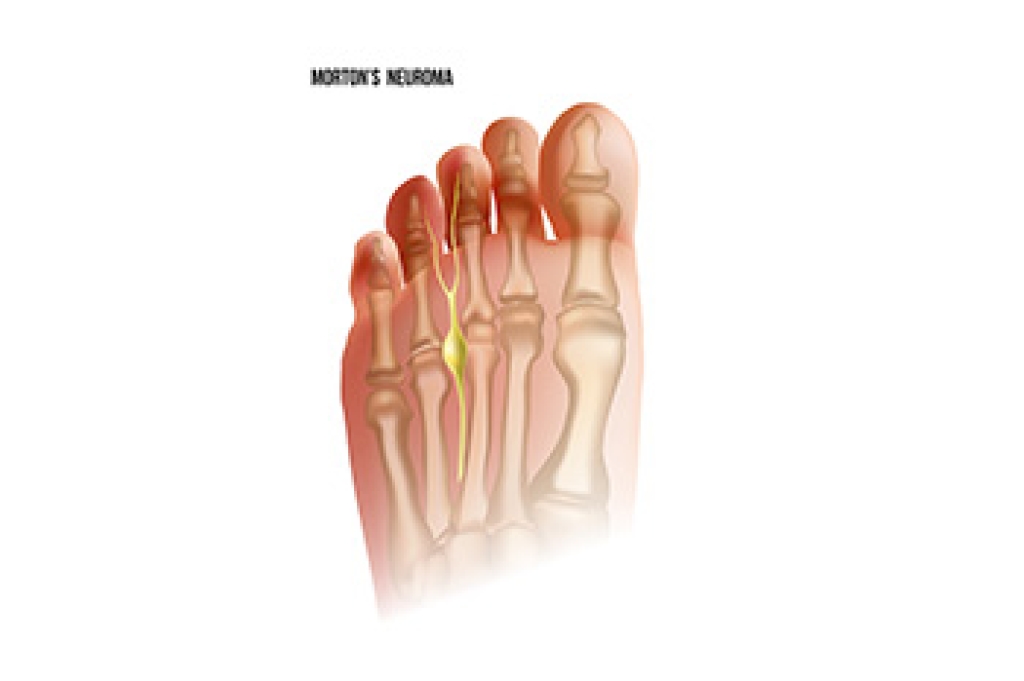
Morton's neuroma is a painful foot condition that affects the ball of the foot, most commonly occurring between the 3rd and 4th toes. It is not a true neuroma, as the name suggests, but rather a thickening of the tissue around the nerve that leads to the toes. The main symptom of Morton's neuroma is localized pain, which can vary from a mild discomfort to an intense, burning sensation. The pain is typically aggravated by walking, wearing tight or narrow shoes, or putting pressure on the affected area. Some individuals describe it as feeling like there is a pebble or a fold in their sock, even when there isn't. Tingling and numbness in the toes may also accompany the pain. People with Morton's neuroma often find relief when they remove their shoes and massage the affected area. Early diagnosis and appropriate treatment can help alleviate the pain and prevent the condition from worsening. It is suggested to seek medical attention from a podiatrist if you suspect you have Morton's neuroma.
Morton’s neuroma is a very uncomfortable condition to live with. If you think you have Morton’s neuroma, contact Pedram Aslmand, DPM of Advanced Foot and Ankle Center. Our podiatrist will attend to all of your foot care needs and answer any of your related questions.
Morton’s Neuroma
Morton's neuroma is a painful foot condition that commonly affects the areas between the second and third or third and fourth toe, although other areas of the foot are also susceptible. Morton’s neuroma is caused by an inflamed nerve in the foot that is being squeezed and aggravated by surrounding bones.
What Increases the Chances of Having Morton’s Neuroma?
- Ill-fitting high heels or shoes that add pressure to the toe or foot
- Jogging, running or any sport that involves constant impact to the foot
- Flat feet, bunions, and any other foot deformities
Morton’s neuroma is a very treatable condition. Orthotics and shoe inserts can often be used to alleviate the pain on the forefront of the feet. In more severe cases, corticosteroids can also be prescribed. In order to figure out the best treatment for your neuroma, it’s recommended to seek the care of a podiatrist who can diagnose your condition and provide different treatment options.
If you have any questions, please feel free to contact our offices located in Long Beach, CA . We offer the newest diagnostic and treatment technologies for all your foot care needs.

